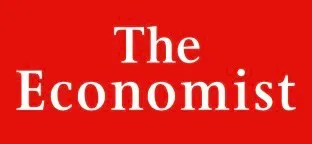BuySellBA
Administrator
Gringo Invasion - The Economist

Source:
Looking for lofts in Buenos Aires
May 25th 2006 | BUENOS AIRES
Foreigners like Mr Kahoun have contributed to a continuing property boom in Buenos Aires. They account for up to a quarter of buyers in some wealthier neighbourhoods. Two years ago, Michael Koh, an American, set up ApartmentsBA, a firm which buys property for foreign clients and rents it out to foreign tenants—about 15% of whom come to the city for plastic surgery. Mr. Koh says his investors, many of whom have never seen their properties, enjoyed a rise in their capital asset of 25% last year on top of rental income worth 10% of their investment.
By comparison with the United States or Europe, housing in Buenos Aires is still cheap. Modern apartments in the elegant districts of Palermo and Recoleta cost less than $1,500 per square metre, and bargain-hunters can buy in slightly older buildings in pleasant, middle-class barrios for a third less.
So far the foreign invasion has not prompted a xenophobic backlash. That may be because it is largely confined to the leafiest neighbourhoods, where many new blocks of flats are going up. And foreign buyers must climb over mounds of red tape.
Sellers demand cash. But foreigners are not legally allowed to bring large sums of money into the country. So the typical route is to transfer the money to the account of an Argentine foreign-exchange house held at a bank abroad. The exchange house converts the funds into pesos, to comply with controls on the import of foreign currency, and then back into dollars (for a fee of around 2%). On completion, the exchange house presents the buyer with a suitcase full of cash to hand over to the vendor. Only then can the would-be resident of Buenos Aires celebrate with a steak and a bottle of vino tinto.

Source:
Looking for lofts in Buenos Aires
May 25th 2006 | BUENOS AIRES
In 2003, when John Kahoun, a New Yorker, decided to buy an apartment as a rental investment, he was deterred by the cost of property in Manhattan. So for $70,000 he bought a loft in Buenos Aires, the home of his former wife. As Argentina's economy has recovered from its 2001-02 collapse, so have property prices. Mr Kahoun's property in Palermo Viejo, a trendy neighbourhood beloved by film-makers and artists, has nearly doubled in value.Foreigners like Mr Kahoun have contributed to a continuing property boom in Buenos Aires. They account for up to a quarter of buyers in some wealthier neighbourhoods. Two years ago, Michael Koh, an American, set up ApartmentsBA, a firm which buys property for foreign clients and rents it out to foreign tenants—about 15% of whom come to the city for plastic surgery. Mr. Koh says his investors, many of whom have never seen their properties, enjoyed a rise in their capital asset of 25% last year on top of rental income worth 10% of their investment.
By comparison with the United States or Europe, housing in Buenos Aires is still cheap. Modern apartments in the elegant districts of Palermo and Recoleta cost less than $1,500 per square metre, and bargain-hunters can buy in slightly older buildings in pleasant, middle-class barrios for a third less.
So far the foreign invasion has not prompted a xenophobic backlash. That may be because it is largely confined to the leafiest neighbourhoods, where many new blocks of flats are going up. And foreign buyers must climb over mounds of red tape.
Sellers demand cash. But foreigners are not legally allowed to bring large sums of money into the country. So the typical route is to transfer the money to the account of an Argentine foreign-exchange house held at a bank abroad. The exchange house converts the funds into pesos, to comply with controls on the import of foreign currency, and then back into dollars (for a fee of around 2%). On completion, the exchange house presents the buyer with a suitcase full of cash to hand over to the vendor. Only then can the would-be resident of Buenos Aires celebrate with a steak and a bottle of vino tinto.

